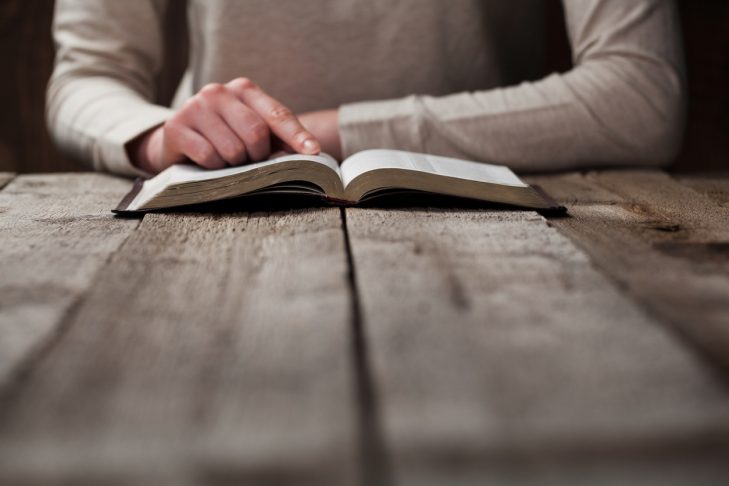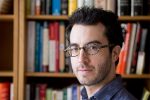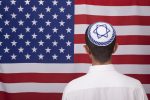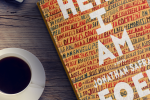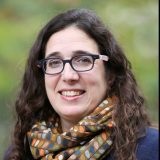With this definition, it seems Jacob Bloch’s bible is entitled to be called just that. Set up as stage directions for the show that will never be produced, it tells the story of who he thinks he is and who he wants to be. His bible is a roadmap for control, even as control eludes him. The poet Robert Burns captured this in “To a Mouse”: “The best laid schemes o’ Mice an’ Men gang aft agley.” We have our own version in Yiddish: “Mentsh trakht un Gott lakht”—Man plans and God laughs. It’s a bittersweet and self-effacing expression, born of a life filled with unpredictable outcomes. The key is making ourselves at home in the unknown. As a people, that has always been our M.O., yet it’s not quite so simple.
There is nothing passive about living in the unknown; it’s characterized by far more movement and agitation than the comfort of the familiar. As Jews, we may own that identity, but not because of our history alone. In our national myth, we are destined for nothing but embracing the unknown and struggling with uncertainty. Read Max’s bar mitzvah speech: “Israel, the historical Jewish homeland, literally means, ‘wrestles God.’ Not ‘praises God,’ or ‘reveres God,’ or ‘loves God,’ not even ‘obeys God.’ In fact, it is the opposite of ‘obeys God.’ Wrestling is not only our condition, it is our identity, our name” (page 511). By definition, we are unsettled. We exist in a space that is both generative and exhausting. Jacob Bloch tries to avoid this reality, even as it hides within his namesake, Jacob, whom the Bible renames “Israel” after he wrestles with God.
We can’t predict the future, yet we choose to get up every morning and face the day. That takes commitment and courage and a small amount of faith, even if it’s not the religious kind. We pick up amulets along the way. Irv blesses cousin Tamir before Tamir boards the plane to return to the devastated homeland. He speaks the traditional trope, the Priestly Blessing, which many parents offer to their children on Friday nights as they welcome Shabbat. These words, too, come from the Bible, used by the ancients to bless the entirety of the Jewish people. It smacks a little bit of magic, I know, but given the opportunity to be blessed or not to be blessed, which would you choose?
Even the secular world is filled with rituals of protection. Our life’s struggle is real and it is good. We get by with a little help from our friends—and we won’t turn down any other help that’s offered.
What helps you feel brave and safe? When are the dangers of a journey worthwhile? How do you try to control things that, deep down, you know are beyond your control? Share your thoughts below!
Glossary of References
Have questions about any of the terms or references used in the book? Please let us know in the comments. Here are four references from Section VII you may have wondered about:
“Y’varech’cha Adonai v’yishm’recha. May God bless you and guard you. Ya’ar Adonai panav ay’lecha viy’hunecha. May God make His face shine upon you and be gracious unto you. Yisa Adonai panav ay’lecha v’yasaym l’cha shalom. May God turn His face unto you and grant you peace.” (page 481)
The Priestly Blessing, Numbers 6: 23-27
“missing the mark” (page 507)
Het, the Hebrew word for “transgression or sin,” means missing the mark because the same term describes an arrow missing the target.
Vayishlach (page 511)
Max’s Torah portion, Genesis 32:4-36:43
Kotzker Rebbe (page 530)
Rabbi Menachem Mendel of Kotzk, a Hasidic leader.
Read On with CJP’s Jewish Learning and Engagement here. And order a hardcover copy of the book here, a Kindle version here and a paperback version (coming in June) here.
Never miss the best stories and events! Get JewishBoston This Week.
This post has been contributed by a third party. The opinions, facts and any media content are presented solely by the author, and JewishBoston assumes no responsibility for them. Want to add your voice to the conversation? Publish your own post here.
MORE


